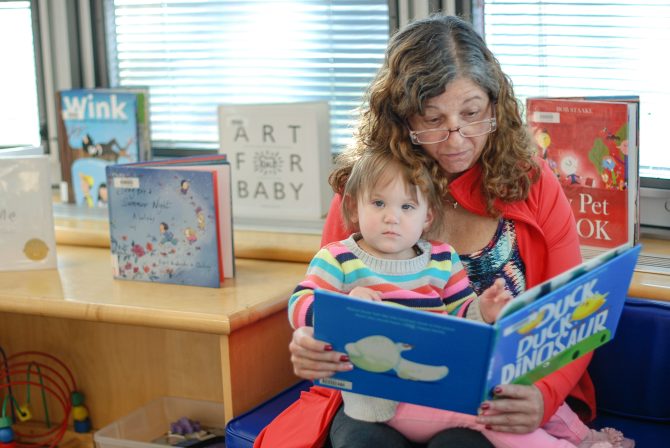Welcome to our blog series about early literacy! In our previous posts, we learned what early literacy is and why it is important for children’s development, how to create a home environment that supports reading together, and how telling and listening to stories are key early literacy skills. Today, we'll focus on another important aspect of early literacy: word sound
The ability to recognize and play with sounds in words is called phonological awareness. It's a crucial skill for reading and spelling. When children develop phonological awareness, they can identify and work with the individual sounds that make up words. This helps them understand how letters and sounds are connected.
Phonological Awareness Activities and Strategies
Rhyming Games: Have fun with rhymes! Read rhyming books or sing nursery rhymes together. Ask your child to find words that rhyme or make up their own rhymes. For example, you can say, "Can you think of a word that rhymes with cat? How about a hat?"
Segmenting and Blending Sounds: Break words into sounds and then put them back together. Start with simple words like "cat" and ask your child to say the sounds they hear (/k/ - /æ/ - /t/). Then, have them blend the sounds together to repeat the word. This helps them understand that words are made up of smaller sounds.
Sound Discrimination: Engage in interactive activities that sharpen auditory perception by singing simple songs and playing games centred around identifying different sounds. You can present various objects or images and have your child identify the beginning, middle, or ending sound of each word. For instance, display a picture of a dog and ask, "What sound do you hear at the beginning of 'dog'? Is it /d/, /g/, or /t/?" Additionally, you can sing short, catchy tunes and encourage your child to pay attention to specific sounds in the lyrics. This playful approach will not only enhance their sound discrimination skills but also make the learning experience enjoyable and memorable.
Phoneme Manipulation: Encourage your child to play with sounds in words. A fun way to demonstrate this is to swap out the initial sounds when reading some of the words in your child’s favourite book. Say “coat” instead of “boat” and prompt your child to correct you. This helps them understand that changing sounds can make new words.
Word Games: Have fun with words! Use alliteration (words that start with the same sound) and ask them to think of words that start with a specific sound. For example, say, "Let's think of words that start with the /m/ sound. How about 'moon,' 'mouse,' or 'mango'?"
Remember, these activities should be enjoyable and interactive. Praise and encourage your child as they develop their phonological awareness skills. Here is a booklist to help your child hear sounds -
By helping your child with phonological awareness, you're building a strong foundation for their reading and spelling skills. In our next blog post, we'll talk about how vocabulary development is essential for early literacy. Until then, have fun exploring the sounds of language with your little one!
Recommended Resources
- SUPER WHY Phonics Fair by PBS Kids: Kids learn reading, word-building and phonics skills through classic carnival-themed games. Visit: SUPER WHY Phonics Fair Mobile Downloads | PBS KIDS
- Phonological Preschool Games by Education.com: This resource includes games to support phonological awareness development in children. Browse Preschool Games | Education.com
- Kiz Phonics includes worksheets, games, videos, stories, and flashcards that teach kids about phonemic awareness, word blending and print awareness. Learn more at Phonics Activities to Teach kids to Read with ABC Phonics/ Kiz Phonics
- "Phonological Awareness Activities" by Reading Rockets: This resource provides a collection of fun activities, games, and videos to support phonological awareness development in children. Explore Phonological Awareness Activities
- "Phonics Play" by PhonicsPlay: This website offers a range of phonics games and resources designed for young learners. It includes interactive games, printable resources, and guidance for parents. Check it out - Phonics Play



Add a comment to: Beyond ABCs: Word Sounds